Asthma Cooperative Agreement Partner Profile – Florida
The Florida Asthma Program (FAP) has been part of CDC’s National Asthma Control Program since 2000. They work alongside partners to improve the quality of asthma care, improve asthma management in schools, and foster policies to help reduce exposure to asthma triggers in outdoor, indoor, and workplace environments.
Strategies in Action
- The FAP Asthma Home Visiting Program began as a pilot between the Department of Health in Miami-Dade County and Nicklaus Children’s Hospital in 2014. The program model includes three visits and two telephone follow-ups to provide asthma education and environmental trigger assessment. Over the years, FAP has expanded asthma home-visiting efforts to local health departments in Gadsden, Miami-Dade, Orange, and Seminole counties. Preliminary reports from 2022 show an 87% reduction in ED visits among 31 participants completing a third visit, compared to baseline. FAP has partnered with Simply Health (a state Medicaid provider) in three counties. As of February 2022, the Simply Healthcare and FAP pilot had 36 families enrolled at various stages of the home visiting program. This success has motivated the Simply Healthcare team to expand these services in the central Florida region to Lake, Osceola, Volusia, Polk, and Brevard counties.
- In collaboration with the Florida Asthma Coalition, the FAP has promoted the Asthma-Friendly Schools (AFS) Recognition Program across the state. The AFS recognition standards encourage schools to implement tiered comprehensive asthma management practices and policies. Schools are encouraged to offer Open Airways for Schools or Kickin’ Asthma, asthma self-management education curricula developed by the American Lung Association (ALA) for elementary and middle school-age students. Other criteria include training in ALA’s Asthma Basics for school nurses and athletic coaches, tracking asthma action plans on file for students with asthma, and having procedures to manage indoor air quality. The FAP provides the EPA’s Air Quality Flags kit materials at no cost to schools to encourage consideration of outdoor air trigger exposure. Since its inception in 2013, the AFS recognition program has honored 143 schools.
- The FAP and a team from Nicklaus Children’s Hospital in Miami initiated a quality improvement project called Standardization of the Transition of Care in Patients Discharged from the Hospital with Asthma Exacerbations (TOC). The goal is to improve the quality of transition of care from the hospital to the home setting for patients admitted with a diagnosis of asthma and for their caregivers. The interventions to achieve the TOC quality improvement outcomes include education of physicians, nurses, and other healthcare professionals on asthma care; assessment and documentation of asthma severity; identification of patients with high risk of healthcare reutilization on admission; standardization of the discharge process; and referrals for the FAP Asthma Home Visiting Program. The TOC project and data collection began in February 2022 and will be implemented for 12 months.

Asthma by the numbers:
1,276,625 Adults with asthma
239,800 Children with asthma
In 2020, a total of 1,276,625 Florida adults (7.3% of the adult population) had asthma, and 239,800 Florida children ages 0–17 years (5.9%) had it.
95,839 ER visits
13,305 Hospitalizations
In 2019, Florida saw 95,839 emergency department (ED) visits and 13,305 hospitalizations due to asthma.
National Asthma Control Program: EXHALE
E
on asthma self-management
X
smoking and exposure to secondhand smoke
H
visits for trigger reduction and asthma self-management education
A
of guidelines-based medical management
L
and coordination of care across settings
E
policies or best practices to reduce asthma triggers from indoor, outdoor, or occupational sources
CDC’s National Asthma Control Program (NACP) and its partners help people with asthma achieve better health and improved quality of life. NACP developed EXHALE, a set of six public health strategies that each contribute to better asthma control.
Each EXHALE strategy has been proven to reduce asthma related hospitalizations, emergency department visits, and healthcare costs. Using the EXHALE strategies together in a community can have the greatest impact.


